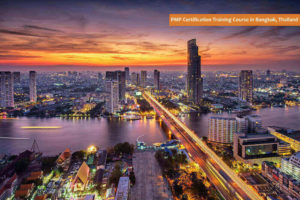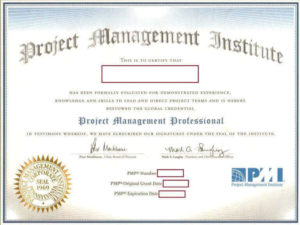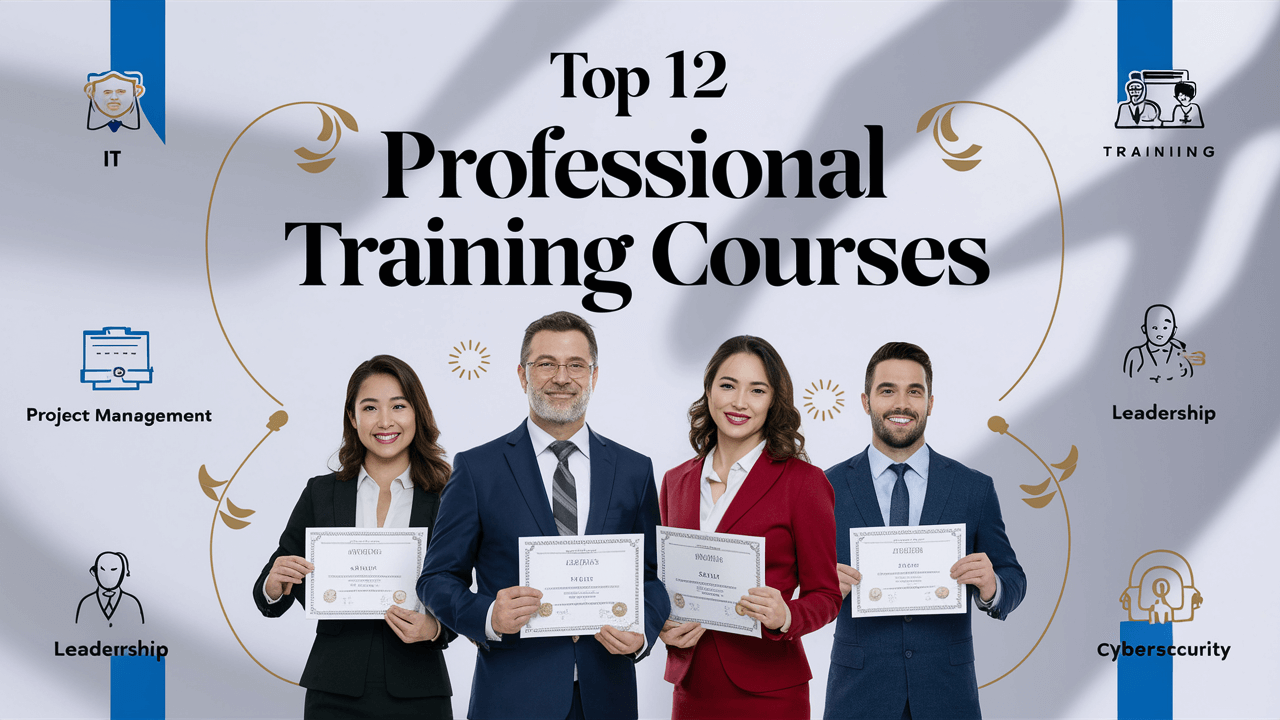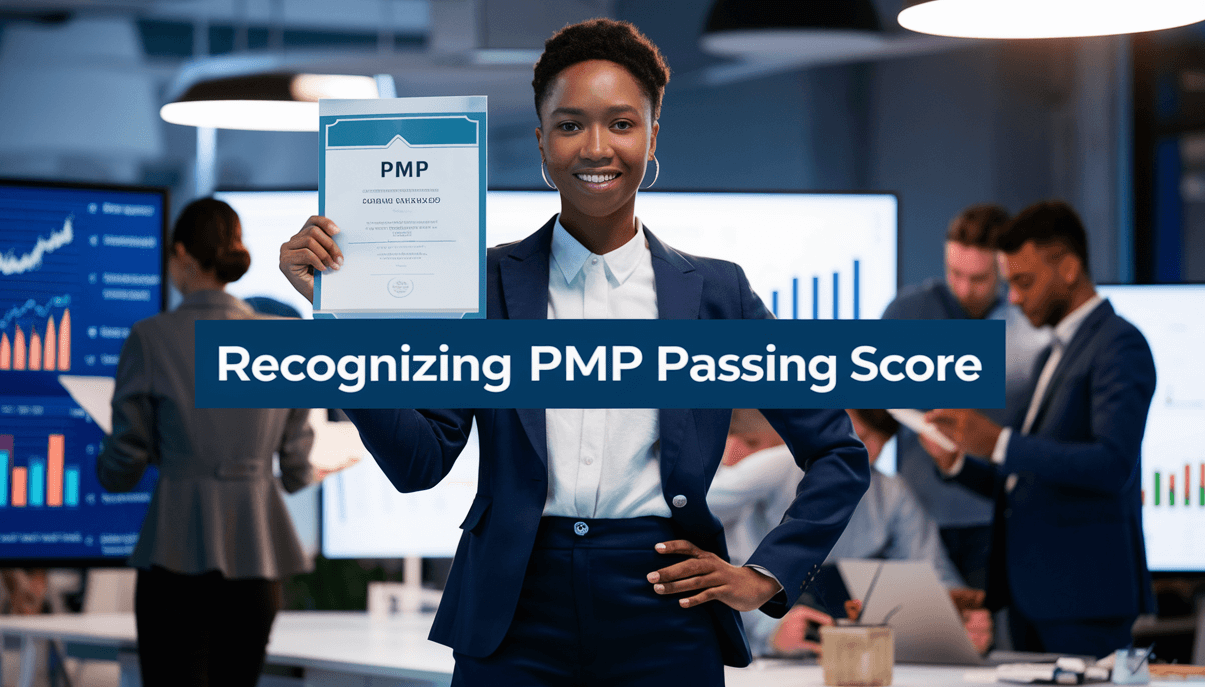Project Management Professional – PMP
All about PMP Certification Training Course in Bangkok, Thailand
What is Project Management?
Project Management involves the coordination and completion of projects within the stipulated time and budget. A project manager is one who manages a client’s project, set deadlines, assign responsibilities, and also organize and monitor the progress of the project. The project manager is indirectly the bridge between the upper management and the team assigned to execute a project. He or she oversees the project to ensure that the desired goal is met using the resources available and all interest groups are truly satisfied.
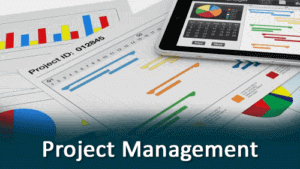
A project manager works in various fields and departments of an organization, from Human Resources, IT, Marketing, Sales, and others. They are well paid for their jobs, and their salaries range around six-figures depending on the location and level of experience.
What is a Project Management Professional (PMP) Training in Bangkok, Thailand ?
Project Management Professional (PMP) Certification is the gold standard of Project Management. PMP Certification Course in Bangkok, Thailand demonstrates the experience, education, skill and competency required to lead and direct projects. PMP Training in Bangkok, Thailand is the most sought after certification administered by Project Management Institute (PMI), USA. Doing PMP Certification Training in Bangkok, Thailand would help the project managers to effectively manage the projects.
Project Management Professional (PMP) Certification is the most sought-after project management certification around the world. PMP Certification Training in Bangkok, Thailand imparts in-depth knowledge in handling of projects with planning, scheduling, controlling and monitoring and closing out the project.
PMI® the parent organization continuously works with the enterprises and academia all over the world to keep the certification relevant to address changing business demands.
15.7 million New Project Management jobs by 2020. The Economic footprint of Project Management Profession is to grow by $6.1 trillion, in the same period. A whopping 37% increase in the output of project-intensive industries, such as Manufacturing, Finance, ONG, Construction, and IT. According to the PMI’s “Project Management Salary Survey 8th Edition”, PMP credential holders will earn nearly 17% more salary than their non certified counterparts.
Having a PMP credential demonstrates that you can understand the global project management language. A PMP Training in Bangkok, Thailand Course is widely-recognized and is not based on one specific methodology; professionals with PMP credential are more flexible and adaptable to different industries, market segments and geographic locations. PMP Training in Bangkok, Thailand Training benefits include career growth, industry change and salary hike.
What are the different types of Project Management Certification Courses available in Bangkok, Thailand ?
1.PMP: Project Management Professional
The PMP Training in Bangkok, Thailand is the most important industry-recognized certification for project managers. This is the gold standard around the world in Project Management!
With a PMP Certification Training in Bangkok, Thailand , you can work anywhere in the world as a Project Manager.
PMP Certification Training in Bangkok, Thailand Prerequisites are:
- A secondary degree (high school diploma, associate’s degree or any global equivalent)
- 7,500 hours leading and directing projects
- 35 hours of project management education
OR
You need to have a Four-year degree with at least 4,500 hours leading and directing projects.
2.CAPM: Certified Associate in Project Management
CAPM Certification is for those who wish to stand apart from the rest. It is proof you understand the fundamentals and processes involved in project management.
CAMP Certification Pre requisites are;
- A secondary degree (high school diploma, associate’s degree or the global equivalent)
- 1,500 hours of project experience
OR
You need 23 hours of project management education by the time you sit for the exam.
3.PRINCE2 Certification
This stands for PRojects IN Controlled Environments. This is a good one to have if you wish to work in the UK or other parts of Europe.
The learning paths include:
- PRINCE2 Foundation
This is the first level which confirms the basic knowledge you have regarding this method. While there are no prerequisites, you should have project management experience.
- PRINCE2 Practitioner
Through this level you get the confirmation you know how to use the PRINCE2 method in the real world.
How different is PMP Certification Training in Bangkok, Thailand than other courses?
Out of the several project management courses, PMP Training is one of the highly preferred certificates for establishing your career as a project manager. The Project Management Institute (PMI) offers this valuable certification. By availing of this certificate, you take a complete knowledge regarding how to tackle and manage a project professionally and effectively producing optimum results in the end. Indeed, you can apply your knowledge and experience in whichever industry you work with. Although PMI is located in Texas US, the course is widely carried out in other continents as well including Europe and Asia. The PMP Certification Training Course in Bangkok, Thailand is often regarded as the encyclopedia of the project management as it offers complete knowledge on the subject.
There are several professional certifications that you can pursue throughout your career. But, among all of those, PMP Training in Bangkok, Thailand is the most valuable certificate programme. Interviewers looking to fill in a position of a project manager understand this. Hence, they tend to prioritize profiles with PMP Certification Training in Bangkok, Thailand over those which do not have such certification.
Project management jobs are high in demand. So, in most cases, several people apply for these jobs. It is time and resource consuming for the company to interview and assess the potential of all the applicants. As such, they like to filter out as many people as possible before the project management interview process. This is where the PMP Certification Training in Bangkok, Thailand proves beneficial as it is one of the most objective ways in which one can shortlist the candidates.
Furthermore, many companies are making it mandatory to have a PMP Certification in Bangkok, Thailand . It means you cannot even apply for some positions without these credentials.
PMP Certification Training in Bangkok, Thailand can also be extremely valuable if you plan to advance in the current company you are working at. It puts you way ahead of your colleagues in terms of moving up the career ladder. Also, a certified manager can do much better in a grueling project management interview than a non-certified one.
PMP Training in Bangkok, Thailand is universally recognized. Many certification programmes focus only on a specific domain or geography. PMP Certification Training in Bangkok, Thailand on the other hand, is global and works with any industry and in any location. So, regardless of the professional background and industry, you can gain by adding the certification to your resume.
If you are just starting out your career in project management, then PMP Training in Bangkok, Thailand will make up for the lack of experience. Say you are experienced and have a proven track record of your work. Then PMP Certification can take you to the next level in your company.
PMP Certification Training in Bangkok, Thailand has high standards. As such, it is not easy to clear this exam without extensive preparation. Moreover, it requires you to master the practical application of the material. Attaining PMP credential will include learning several hard and soft skills. It builds the knowledge of fundamental project management processes tools & techniques and methodologies. Further, it exposes you to best practices and current trends in project management. You can also learn new tricks and techniques in project management activities.
What are the prerequisites of PMP Certification Training Course in Bangkok, Thailand ?
There are three kinds of prerequisites which shall be met before applying for PMP exam in Bangkok, Thailand that include:
- Educational background
- Project management experience
- Project Management education.
The prerequisites are presented in a table below.
| Educational Background | Project Management Experience | Project Management Education |
| Secondary degree (High School Diploma, Associate’s Degree or Global equivalent). | Minimum five years/60 months unique non overlapping professional project management experience, during which at least 7,500 hours were spent leading and directing the project*. | 35 contact hours of formal education. |
| OR | ||
| Four-Year Degree (Bachelor’s Degree or Globally Equivalent). | Minimum three years/36 months unique non-overlapping professional project management experience, during which at least 4,500 hours were spent leading and directing the project*. | 35 contact hours of formal education. |
To be eligible for the PMP Certification, you must meet certain educational and professional experience requirements. All project management experience must have been accrued within the last eight consecutive years prior to your application submission.
The above table is the only eligibility requirement for applying for the PMP Certification Exam. In conclusion, all of these prerequisites are compulsory and must be fulfilled; failing will make you ineligible for PMP Certification Training in Bangkok, Thailand .
What are the types of PMP Certification Training modes available in Bangkok, Thailand ?
There are 3 types of training mode that one can opt for:
- PMP Certification Training Online.
- PMP Certification Training Classroom.
- PMP Certification Training Self Paced.
1.PMP Certification Training Online
These PMP Certification Training in Bangkok, Thailand courses are good if you need a defined training schedule with some flexibility. These are much better for learning than self-learning courses but they are not as good as classroom courses. It is a great option for those who need to accommodate busy work or family schedules, those who don’t have access or resources to a traditional classroom or simply need to learn at their own pace.
These are more expensive than self-learning courses but somewhat less expensive than classroom courses – usually, a good instructor-led course costs around $200 to $2000.
2.PMP Certification Training Classroom
The PMP Certification Training Classroom mode is the best for learning. They can increase the chances of your success substantially. As we heard a few proverbs like “What we see is what we learn”.
To do classroom training, you should find the best trainer. The trainer is the most important aspect of classroom training. You have to spend 4 days with the trainer. If the trainer is not good, your money and time both will be wasted.
Most of us try to find the best institute while the best trainer is a step to success. An aspirant remains in contact with the trainer for 4 days. The institute has very little role during these 4 days. It does not mean that the institute is not important. A good institute would provide comprehensive study material & good post-workshop support. But first, find out a good trainer and then choose the institute.
3.PMP Certification Training Self Paced
The PMP Self–paced instruction is any kind of instruction that proceeds based on learner response. The content itself can be curriculum, corporate training, technical tutorials, or any other subject that does not require the immediate response of an instructor.
These courses are good if you have got good self-discipline & self-motivation. You can save a lot of money by taking a good self-learning course – usually, a good course costs around $600 to $800.
What are the topics covered under PMP Certification Training Course in Bangkok, Thailand ?
1.Introduction to PMP Certification Training Program
What is PMI & PMBOK® Guide?
Evolution of PMI®
Certifications offered by PMI®
PMI® Contact Resources
What is PMP®?
Prerequisites for the PMP® Exam
PMP® Exam Syllabus
The Structure of the PMP® Exam
2.Project Management Framework
Definition of a Project
What is Project Management?
What is Operations Management?
What is Program Management?
What is Portfolio Management?
Project Management Office (PMO) Constraints
Role of a Project Manager Organizational Structure
Enterprise Environmental Factors
Organizational Process Assets
Project Life Cycle Vs. Product Life cycle
3.Project Management Processes
Project Life Cycle Overview
Project Life cycle versus Project Management Process Stakeholders
Key Stakeholders
Process Groups, Knowledge Areas
Input/ Output of 47 Project Management Process Groups
Organizational influences on Project Management
4.Project Integration Management
What is Project Integration Management?
Role of Project Team
Role of Project Sponsor
Project Selection Methods
Core Processes of the Project Integration Management Knowledge Area
5.Project Scope Management
What is Project Scope Management?
Product Scope vs. Project Scope
Core Processes of the Project Scope Management Knowledge Area
6.Project Schedule Management
What is Project Time Management?
What is Project Schedule, Gantt Charts & Network Diagram Estimation?
Schedule Network Analysis Techniques
PERT, PERT Analysis, Critical Path Method and Schedule Compression
Core Processes of the Project Time Management Knowledge Area
7.Project Cost Management
What is Project Cost Management?
Differentiate between Cost Estimating and Cost Budgeting
Key Terminology in Project Cost Management
Core Processes of Project Cost Management Knowledge Area
Earned Value Technique
8.Project Quality Management
What is Quality?
What is Quality Management?
Cost of Quality Core PM Processes of Project Quality Management
Knowledge Area
Seven Basic Tools of Quality
9.Project Resource Management
What is Human Resource Management?
Roles and Responsibilities of the Project Sponsor
Functional Manager vs. Project Manager
Core processes of Human Resource Management Knowledge Area
Conflict Management
Motivation Theory
10.Project Risk Management
What is Communication?
Communication Methods, Technology and Channels
Basic Communication Model
Key Terminology in Project Communication Management
Core processes of Communication Management Knowledge Area
11.Project Procurement Management
What is Risk?
What is Project Management Risks?
How are Risk & EMV calculated?
Risk Classification Decision Tree, Analysis Risk Reserve & Contingency Reserve
Key Terminology in Project Risk Management
Core processes of Risk Management Knowledge Area
12.Project Stakeholder Management
Who is a Stakeholder?
What is Stakeholder Register?
Various Analytical Techniques for Stakeholder Analysis
Various Management and Interpersonal Skills
Key Terminology in Project Stakeholder Management
Core processes of Project Stakeholder Management Knowledge Area
PMP® type exam questions
Tricky test questions
Exam key terms
What is the Application Process for PMP Certification Training in Bangkok, Thailand ?
If you have decided to become a PMP®, make sure that you are eligible to apply for the PMP Exam. Please do not apply for it if you are not qualified so that you won’t waste your time and effort.
Make sure that you fulfill all the eligibility requirements before applying for the exam. If you meet the eligibility criteria, you begin with the PMP Application Process.
There are two methods to fill the PMP Examination in Bangkok, Thailand application form: online and a printable form. With the offline version, you will send the form via courier after filling it. However, the online version is instantaneous.
There are four steps to applying for the PMP credential:
- Fill out the online application form
- Paying the fee
- Completing the PMP Audit Process
- Scheduling your PMP Exam
When applying for any of their credentials, the Project Management Institute -PMI® encourages every candidate to utilize the online certification system. Printable application forms are available on the site.
Before beginning, make sure you meet the requirements. The necessary information will be recorded in the application. Once the application process has begun, it cannot be cancelled; however, an unfinished document can be saved and completed later.
The PMP Certification Training in Bangkok, Thailand application form will be open for 90 days, during which PMI will send you reminders to complete the application process. Though the organization sends several reminders, the responsibility lies on you to schedule and appear for the exam within one-year eligibility period.
Before submitting the application form, you will need to read and agree to PMI Code of Ethics & Professional Conduct and the Certification Agreement/Renewal Agreement. All of this information can be found in the Project Management Professional (PMP®) Course Handbook.
- Fill out the PMP Certification Application Form
The PMP Course application form is divided into three parts:
- General information
- Your project management experience
- Details of the 35 hours training program
Ensure to submit the accurate and correct information because it will be difficult for you to change it at later stages once the information is submitted. So take your time to revise all the information at least twice to ensure its correctness, and then submit it.
PMP Application Processing
The timeline of processing an application is dependent on how the application is submitted: online or on paper through the mail. The table below shows the details of the processing period.
| Application Submitted | Process time | |||
| Online | 5 calendar days | |||
| Paper | By individuals | 10 business days | ||
| By companies | 20 business days | |||
2.Paying the PMP Certification Fee
After your application is reviewed and accepted, the PMI will send you a confirmation email and will ask you to make the payment for the PMP Certification Exam. The cost is dependent on your PMI membership status and the examination delivery type for specific geographic locations. The exam comes at a discounted rate for members; you must be a PMI member before you make your payment. If you apply for membership just before the payment period, you will need to first verify being a member. If the membership is not processed completely, you will be charged the non-member rate. If you are a PMI member, you will have to pay 405 USD, but otherwise, you will pay 555 USD.
The table below shows the payments methods you can use.
| Payment Type | Method for Sending payment | |
| Credit Card | Online Certification system/Post | |
| Cheque | Post to PMI | |
| Money order | Post to PMI | |
| Wired transfer | Mail customercare@pmi.org for details |
Once your payment has been received, you’ll receive one of the following notifications:
- Instructions that will help you schedule your exam
- The application has been randomly selected randomly for the PMI’s audit process
- Completing the PMP Audit Process
The selection for the audit process comes after you submit your application. It is a random process and you will know immediately whether you have been selected for the audit or not. If you are not selected for an audit, you can move on to the next section.
However, if you are selected for an audit, the PMI will ask you to provide them with some documents like copies of your experience certificates, contact hours training program information, education certificates, etc. Just send them by mail, and it will take them approximately one week to review your documents.
After reviewing your documents, they will approve your application if they are satisfied. After that, you can now make the payment.
4.Scheduling your PMP Certification Exam
You should first read the PMI’s Exam Scheduling Instructions. Then, complete the steps below to schedule an appointment on the Pro-metric website:
- Select a geographic location.
- Select “Schedule an Appointment”.
- Read through the exam information that appears.
- Agree to the Policies and the Data Privacy Notice.
- Enter the “PMI® Eligibility ID” and the first four letters of your last name.
- Select a preferred test centre.
- Select an exam date and time.
- Confirm the contact details.
- Review the appointment details.
- Take note of your examination confirmation details and the unique 16 digit confirmation number displayed.
Rescheduling Your PMP Certification Exam
If you have already scheduled the exam but need to shift dates, you are allowed to reschedule your exam up to two days prior to your originally schedule exam date and time. However, an administration fee may apply according to the following fee agreement:
- Beyond 30 days: no fee
- Within 30 days and 2 days before the exam: $70
- Within 2 days: no fees—all fees forfeited
What is the Exam fee for PMP Certification Training in Bangkok, Thailand ?
PMP is one of the most valuable and high demand certifications in the project management category. If you are a PMP certified, then it is highly likely that your employer would pay you more. So, Compare to other certifications, PMP is tougher and require more preparation to pass the exam.
Please note that it is worth investing money for PMP exam. There is great demand for the PMP candidates.
The cost of PMP Exam can vary from person to person and region to region. We will try to generalize it and find an average cost for PMP exam.
First of all, it must be kept in mind that there are two types of costs for PMP certification.
- Fixed Cost.
- Variable Costs.
Now we will try to explore these two types of cost.
Fixed Cost
Fixed costs includes the PMP Exam fee which is
- $405 for PMI members.
- $555 for Non PMI members.
PMI membership fee is $139.
Variable costs
Unlike fixed cost, variable costs are of different type and there can be a large variation between them. Variable costs include:
Cost of 35 hrs mandatory training
It is mandatory to attain a 35 contact hrs formal training before applying for PMP exam. The formal training can be of different types and there are various options available. There are three main kinds of formal training:
- Classroom based in-person training: This is the most expensive form of training and it usually consists of 5 days boot camps. Although other types are also there but 5 days boot camps are most popular. It’s cost range from $400 to $1000 per person.
- Classroom based virtual training: There are many organizations who offer classroom based virtual training. This type of training is useful for those who can dedicate a fixed amount on time on certain days but can’t go to classroom based in person training. Its cost ranges from $200 to $500.
- Self paced online training: This type of training is for those who want to study on the go or whenever they have time. It’s cost range from $70 to $400. There are many institutions that provide best online self study training you can try. They also offer 1000 practice questions with their self study training.
Which are the best books to refer to prepare for PMP Exam?
This combination of books served well on the PMP Course Exam. However, you should definitely take into account that each individual has different study habits, and certain combinations of study materials may work better for your personal preferences. (Side note: one of the things that I found annoying is that a lot of online article have a hard time saying “These are the three books you should use.” I don’t have a hard time saying that — these books are tried and true!)
You must have a copy of the PMBOK Guide that you read multiple times. (I’ll discuss how to use the PMBOK Guide below. The only choice you need to make is between Rita Mulcahy’s PMP Exam Prep and Head First PMP. I discuss the pros and cons of each below too — my goal is for this article to be your one-stop shop in choosing your paper-based PMP resources.
Also remember that books aren’t your only option when studying for the PMP Exam. There are also plenty of online resources (like the one you are reading now). There are also podcasts and much more — don’t get stuck on paper.
Be sure to also do your research and ensure that the guide you are purchasing matches up to the newest edition of the PMBOK Guide. If you find a used copy for cheap on Amazon that matches up with the second edition of the PMBOK Guide, then you haven’t invested properly in ensuring you’ll pass the PMP Exam.
1.PMBOK Guide
You might be saying, “Why is this dude even including the PMBOK Guide on the list?” Well, it is the best book to study for the PMP Exam. Purchasing the PMBOK Guide can be kind of pricing and you might be wondering if you really need to buy it to pass the PMP Exam. The answer is a resounding “YES!”
As a project manager, you want the primary source information to be totally up-to-date in your field. Plus, you’ll want to keep your PMBOK forever and refer to it as you manage projects. Some of the books on this list you may want to keep as you move forward managing projects, but to be totally honest, some of them are really just exam prep books.
- It’s your primary source.If you really want to be a project management expert, you’ll want the PMBOK guide forever and ever. It is the definitive guide to project management. It’s even in the title: the Project Management Body of Knowledge. This is clearly the text you should know best.
- It’s methodical — almost excruciatingly so.Perhaps not surprisingly, PMBOK is organized to the point of repetitiveness. While other books will get you to connect to the material in a way that’s relatable, PMBOK does it is a way that’s authoritative.
- It’s all you really Plenty of folks have passed the PMP Exam without study materials, because most of what you need is in the PMBOK guide. If you’re the kind of person who can read the textbook once and pass the exam, then the PMBOK guide is for you.
2.Rita Mulcahy’s PMP Exam Prep
Rita’s book is excellent, and for years it has been the gold standard of project management preparation. I used it personally, and I compare it against Head First PMP because both are shown to work, according to the many folks who have used each and passed and (2) Head First is the second best-selling book behind Rita.
- The practice questions are excellent.Though the tone of the practice questions is a little different than the PMP exam, I found them extremely useful to test my knowledge of the chapter.
- It gives you everything you need to pass the exam and then some.This book covers every topic you could possibly encounter on the PMP Course Exam but somehow makes it more accessible than the PMBOK guide. The way the book synthesizes the information is invaluable.
- It feels like a personal PMP coach. The prose reads like someone is really coaching you to complete the exam. I loved it, because it felt like someone was watching me. They would say things like, “Slow down! Did you really write down all of your thoughts for the last exercise?” Of course I hadn’t! Rita’s book made me think more than the others.
3.Head First PMP
Full disclosure: I actually only used the PMBOK Guide and Rita for my study efforts. But Head First PMP came in a close third, and if you want to invest in both resources, it might not be a bad idea to get it. I’ve done a really thorough review of the feedback on Head First, so here we go!
- It’s the easiest reading.Folks say that Rita’s book put them to sleep, but Head First PMP is really engaging. If you like short and snappy, then Head First may be for you.
- There are lots of graphics and diagrams.If you like lots of visuals, then Head First has you covered. It uses lots of imagery to explain complex concepts.
- You could even use it as a precursor to Rita.If you are feeling like you can’t choose, then don’t! Buy the Head First exam, read it first, and then use Rita’s book. It’s simple and fun style will be a good introduction to the concepts of the PMP Exam, and then you can round out your studying with Rita’s comprehensive approach.
When it comes down to deciding what PMP resources you are going to use on your exam, it’s crucial to know how you learn so that you choose resources that fit your needs. However, you can also get decision fatigue from looking at all of the options out there.
For that reason, I recommend as a requirement the PMBOK guide and then choosing either Rita Mulcahy OR Head First PMP, depending on your personal preferences. Don’t get decision fatigue — just choose and start studying!
What is PMP Exam Pattern and Distribution of percentage on different knowledge areas?
Below is the outline of the questions from various domains:
Percentage of questions
- People: 42%
- Process: 50%
- Business Environment: 8%
There will be 200 questions in the PMP exam, and you will get 4 hours to complete the test. There is no break during the exam, however, if you wish, you can take a short break, but clock will not stop. Please note that there is no negative marking.
What are the ways to take up PMP Certification Exam?
PMP Exam is administered in two modes
1.Computer Based Exam (CBT)
CBT is conducted through Pro-metric centres and is the standard method of administration. List of Pro-metric centres is provided to applicant and is also available on PMI website.
2.Paper Based Exam (PBT)
A candidate lives at least 300 Km away from a Pro-metric centre can request for PBT. PMI time to time schedule PBT based on number of requests. PMI needs at least 10 candidates to administer a PBT. If minimum 10 candidates are not available, scheduled PBT can be cancelled. You can check for PBT events on PMI’s website. An employer can also conduct a PBT for its employees. In such cases only employees can participate in the PMP Exam.
PMP Certificate Sample Bangkok Thailand
